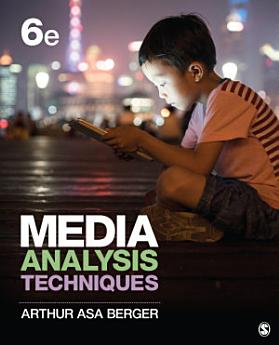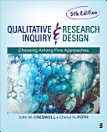Media Analysis Techniques: Edition 6
About this ebook
—Donna Halper, Lesley University
In the Sixth Edition of Media Analysis Techniques, author Arthur Asa Berger once again provides students with a clearly written, user-friendly, hands-on guide to media criticism. The book empowers readers to make their own analyses of the media rather than just accept how others interpret the media. Media Analysis Techniques begins by examining four basic techniques of media interpretation—semiotic theory, Marxist theory, psychoanalytic theory, and sociological theory—that Berger considers critical for creative people to acknowledge if they are to understand how their creations translate to the real world. Application chapters then link popular culture to these four theories. Written in an accessible style that demystifies complex concepts, Media Analysis Techniques includes learning exercises, a glossary, study guides, and the author’s own illustrations.
New to the Sixth Edition:
- A new chapter on discourse analysis offers students techniques for analyzing the language in texts.
- New content on psychological impact of social media shows that there are often negative consequences to using social media.
- Increased coverage of technology and social media helps readers apply time-tested analysis techniques to the latest media.
- Updated examples from popular culture bring theory to life.
- New drawings and photo images illustrate concepts and enhance the visual attractiveness of this book.
- New material around generational differences describe to students how each generation interacts with media differently, particularly the millennials.
- New discussions by thinkers who have made major impacts on popular culture, such as
- Daniel Chandler on semiotic codes
- Michel Foucault on change in cultures
- Mark Gottdiener on sign vehicles in semiotic theory
- Guy Debord on the Society of Spectacle
- Mark Thompson et al on Marx’s neglect of egalitarian political culture
- Marcel Danesi on myth and popular culture
- Ernest Kris on the Oedipus Complex
- Sigmund Freud on the purposes of jokes
- Clotaire Rapaille on the new "Global code."
- Teun van Dyk on discourse analysis and ideology
- Wolfgang Iser on reception theory
About the author
Arthur Asa Berger is Professor Emeritus of Broadcast and Electronic Communication Arts at San Francisco State University, where he taught between 1965 and 2003. He has published more than 100 articles, numerous book reviews, and more than 60 books. Among his latest books are the third edition of Media and Communication Research Methods: An Introduction to Qualitative and Quantitative Approaches (2013), The Academic Writer’s Toolkit: A User’s Manual (2008), What Objects Mean: An Introduction to Material Culture (2009), Bali Tourism (2013), Tourism in Japan: An Ethno-Semiotic Analysis (2010), The Culture Theorist’s Book of Quotations (2010), and The Objects of Our Affection: Semiotics and Consumer Culture (2010). He has also written a number of academic mysteries such as Durkheim is Dead: Sherlock Holmes is Introduced to Sociological Theory (2003) and Mistake in Identity: A Cultural Studies Murder Mystery (2005). His books have been translated into eight languages and thirteen of his books have been translated into Chinese.








